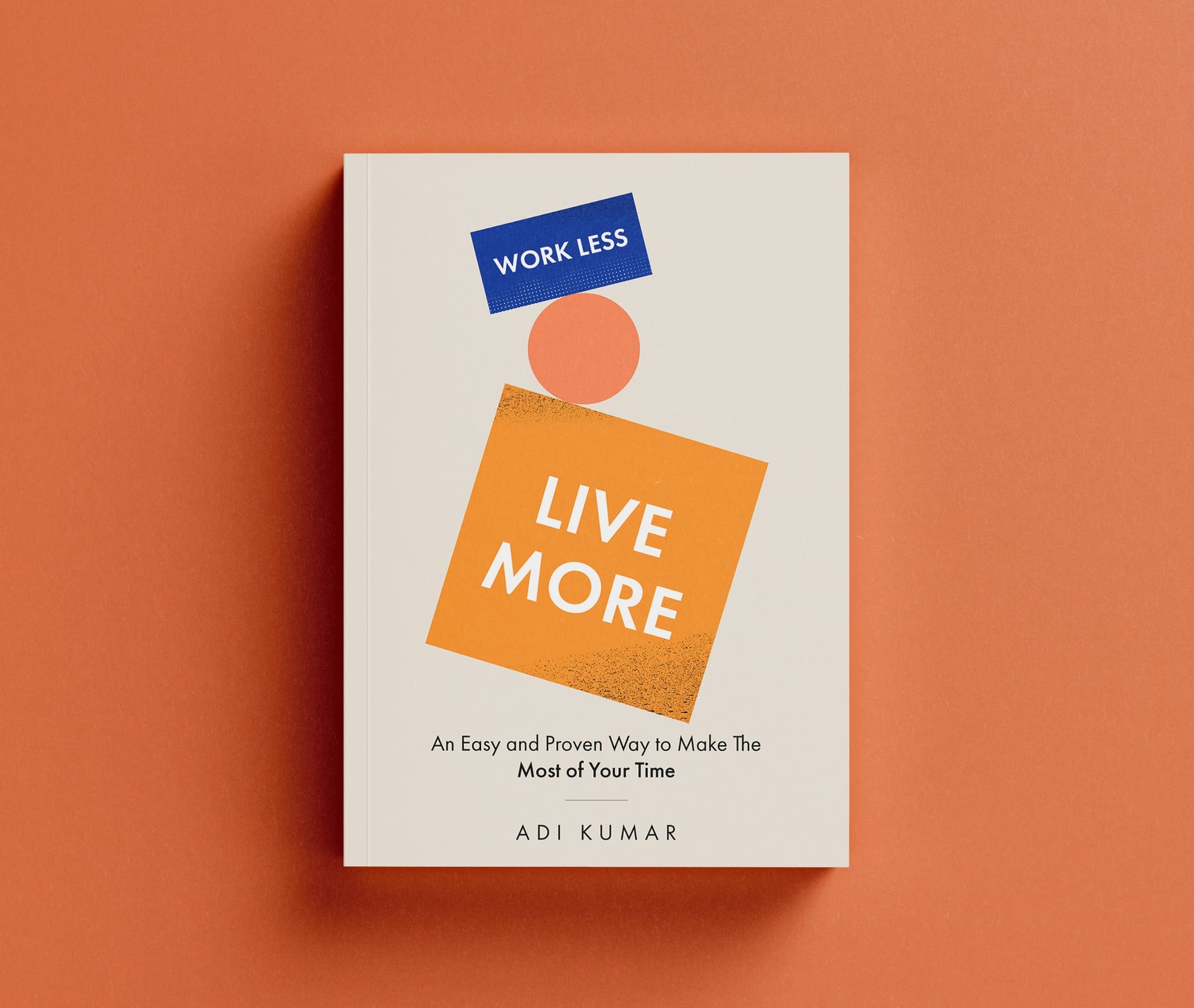#048 The Biggest Problem with Time Management
And with that choice the things you do decide to do become more meaningful. You appreciate what is happening instead of getting frustrated about what isn't.

My head hit the pillow. It was only lunchtime. Exhausted after three emergency cases overnight, I could only think about sleep. I closed my eyes and felt my arms twitch. I was immediately entering deep sleep, a sure sign of sleep deprivation.
“CALL FROM 0141...” My phone likes to tell me who is calling. I recognise the hospital number. I answered and was quizzed about when I planned to attend my afternoon clinic. Now wide awake with the added guilt so familiar to doctors that you are making your patients wait, I started calling friends for help. After going through each patient with a colleague, who had kindly agreed to cover my clinic, I sat upright in bed. My alarm to wake up went off—time to pick the kids up early from nursery and go to the dentist for our family appointment.
I am Adi’s lack of time management...
If there is a productivity game, I've been in it for a while. I've read the books, written a book and coached consultants on the principles in the book.

Yet I'm still learning. And that's what I will share with you today.
There is so much you want to do. Succeed in your career. Be present with your family. Keep up your hobbies. Look after yourself.
When faced with a near-infinite number of things to do and finite time, the obvious answer is to learn time management. Books, courses, coaching - they all help and will move you closer to your goals.
But at some point in this climb of achievement, you will have to make a choice.
After reaching the summit, a new mountain appears in the distance. And faced with the option of descent back to where you started, or the next climb, you brace yourself and forge ahead.
But what will you do after climbing the next peak, only to find the range goes on forever? When do you stop? When do you keep going?
I've been watching some of Ali Abdaal's Deep Dive Interviews recently. In one of his recent videos, he recounts a dinner party conversation with a teacher. The teacher wants to become a millionaire in 10 years and achieve financial freedom.
Ali breaks down the goal into roughly earning £10,000 per month and then turns the conversation to the plan that will get his friend there. It soon becomes obvious that the goal and the plan do not match. The teacher earns £50,000 working full-time in London. His days revolve around his work, which he enjoys, and his family.
A plan is the action that will get you to your goal. If you are at A and want to get to B, then the plan is the route between the two. If you don't know how to get from A to B then you have a knowledge problem. You need to ask for directions or find a map.
Once you know how to get from A to B you will realise there is more than one route. Now you must decide which route is within your skillset and will take the least time. The fastest route might be too difficult for you, so you can either pick a different route or get some training to increase your skills.
When I have to make this choice I go for the plan I can start now, even if it isn't the fastest. The space between defining your goal and starting the plan is where procrastination goes to feed.
Now you've picked your route you have a time problem. You need to use your limited time effectively to get from A to B while also doing the essentials of life. This is where time management and productivity come in.
They are tools that will help you move faster and more efficiently. Think of climbing boots instead of flip-flops. You could try to climb a mountain in flip flops - the mechanics of climbing remain the same - but it's going to be a much longer climb than if you had some grip and protection under your feet.
Ali's teacher had a lightbulb moment when the obvious was laid bare - he would not reach his goal following his current plan. Though this is obvious to you and me, it often takes verbalising the situation before realisation kicks in.
Now the teacher has two options.
One - change his plan. Two - change his goal.
And this is where Oliver comes in.
Oliver Burkeman is a British author and journalist. In 2021, he published Four Thousand Weeks: Time Management for Mortals, a self-help book on the philosophy and psychology of time management and happiness. It's a pragmatic grown-up read giving balancing to the current 24/7 hustle culture.
Listening to an interview with Oliver I had a lightbulb moment as he pointed out the glaring flaw in a well-known time management fable.
A teacher gives his students some rocks, pebbles, sand and a jar. The challenge is to fit everything inside the jar. The students have varying degrees of success. Some put the sand in and then the rocks, but then can't fit the pebbles. Others put the pebbles and sand in, but then can't fit the rocks. With a smile, the teacher wisely demonstrates that to fit everything into the jar you must start with the rocks first, followed by the pebbles and finally the sand.
By now you get that the rocks are your most important jobs and must go first. These are the biggest actions in your plan that take you towards your goal. The pebbles are the essential but less pressing work that still needs to get done. Finally, the small sand can sneak into the nooks and crannies in fallow time where you can find it.
It's a simple story with a simple message - the jar is your time and the things that go inside it are what you want to do. To get everything done, do the important things first and the rest will fit into the gaps.
A useful story for those who don't prioritise. It has some crossover with the Eisenhower Matrix and I've talked about them together before.
But if young Oliver was in that class his hand would shoot up and point out a problem.
"That's a cute story teach, but it only works if you already know the space all the stuff needs and the size of the jar."
Silence falls and Oliver is about to get detention. Despite being punished and going home late he has a point.
There's an underlying assumption with all time management techniques that if you follow them you will get everything done. But it's not true. There's a conveyor belt of rocks, pebbles and sand landing at your feet and you have a finite jar.
What's more, you don't even know how big your jar is – it's behind a screen. We like to think our jar is infinitely big - packing it with sand first. But for some of us, our jar is already nearly full. We just don't know it.
Ali's teacher had come to his choice.
With an unknown, finite amount of time and a plan that won't take him to his goal, something needs to change. If he wants to be financially independent he needs to change his plan. And if the plan needs to change something in his life has to go. Either quit his job or spend time at home on a new business.
If he loves his job and time with his family then he needs to change his plan. He needs to be comfortable that he can't have his cake and eat it too. And that's OK.
Because why is he becoming a millionaire? Why does he want to be financially free? Without having a 9-5 how will he spend his time? If it's to spend more time with his family, is he not doing that already?
Your jar is finite. You don't know how big it is. And you can't do anything about it.
But you do get to choose what you put in it.
You do get to choose what you don't put in it.
And choosing not to do something that you know you can do takes courage. It takes accepting that you won't do everything you want to do.
And with that choice the things you do decide to do become more meaningful. You appreciate what is happening instead of getting frustrated about what isn't.
You set the goals. You choose the path. You pick up the rocks.
No one else will walk in your shoes.
P.S.
If you struggle to find enough hours in the day for work and family, I can help you out.
Join over 500 people who have picked up my book Work Less, Live More. It's a battle-tested field manual to get things done in the real world, while still finding time to look after yourself
If you have any questions, comment below or contact me on X or LinkedIn. Happy to help where I can.
